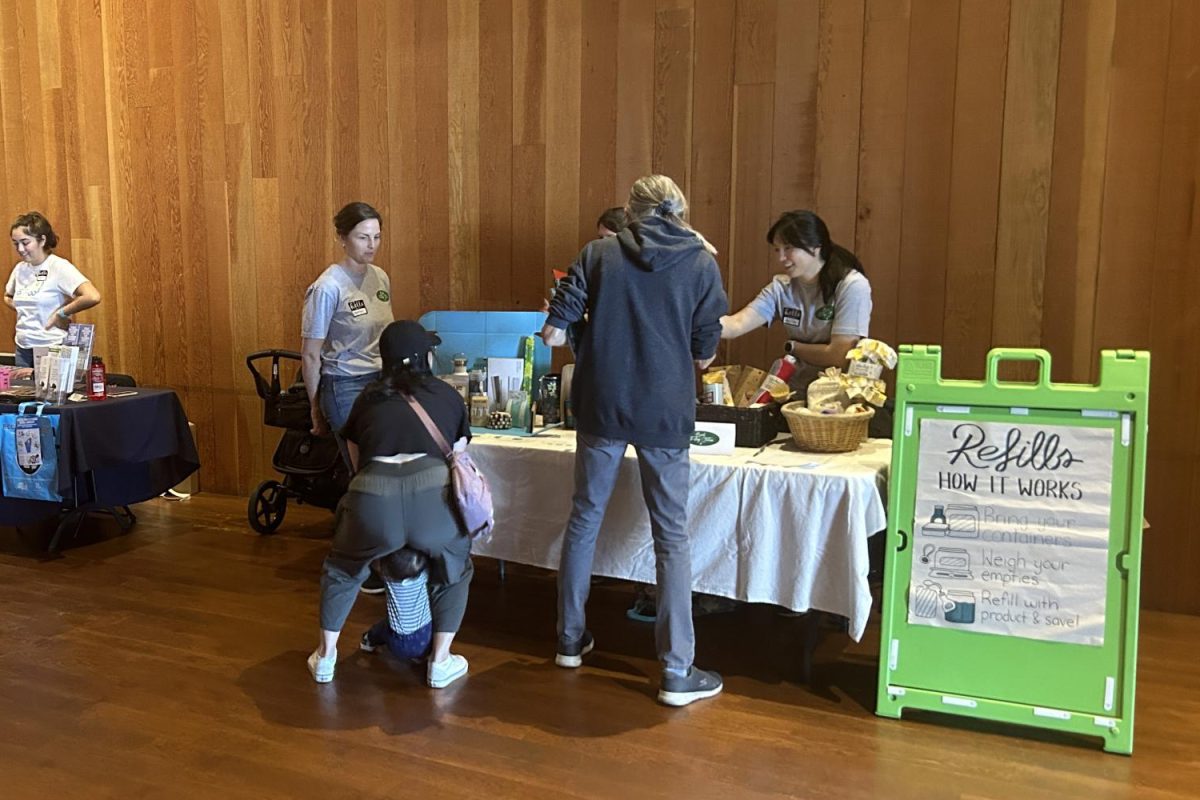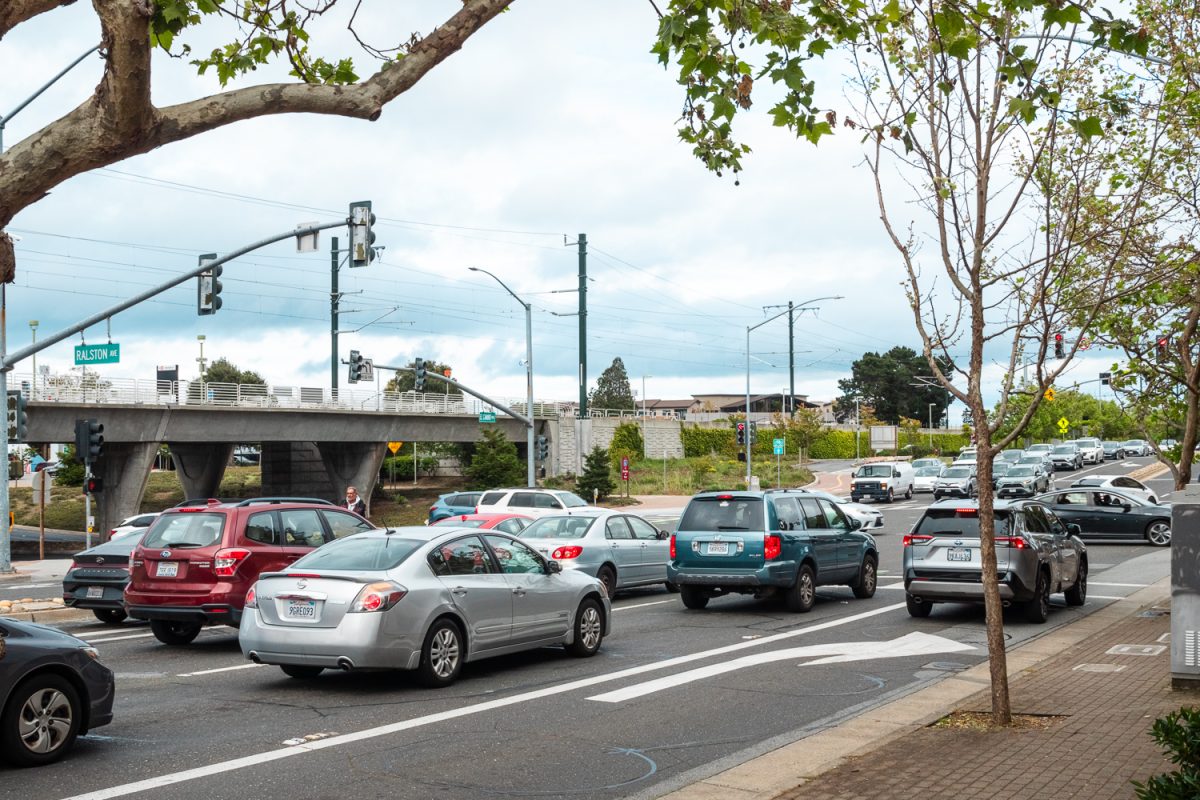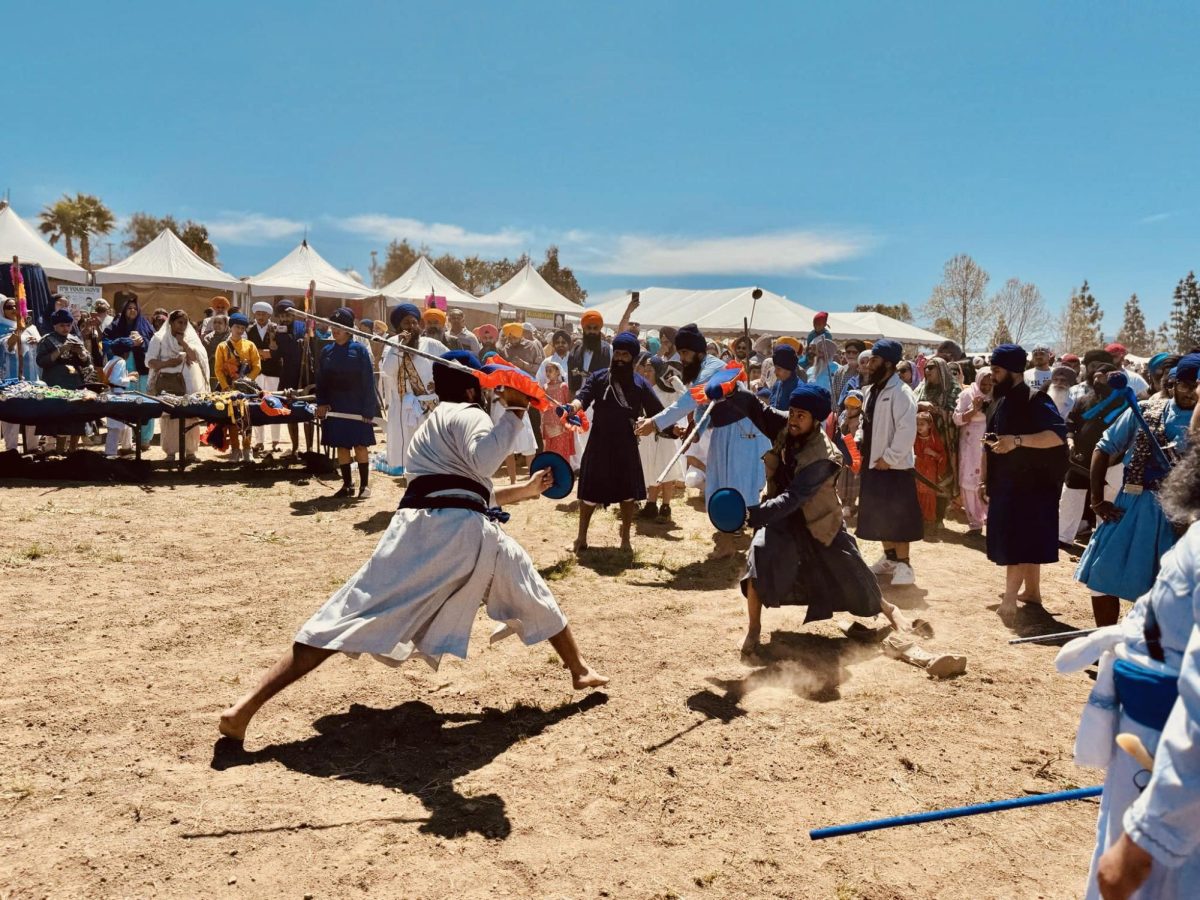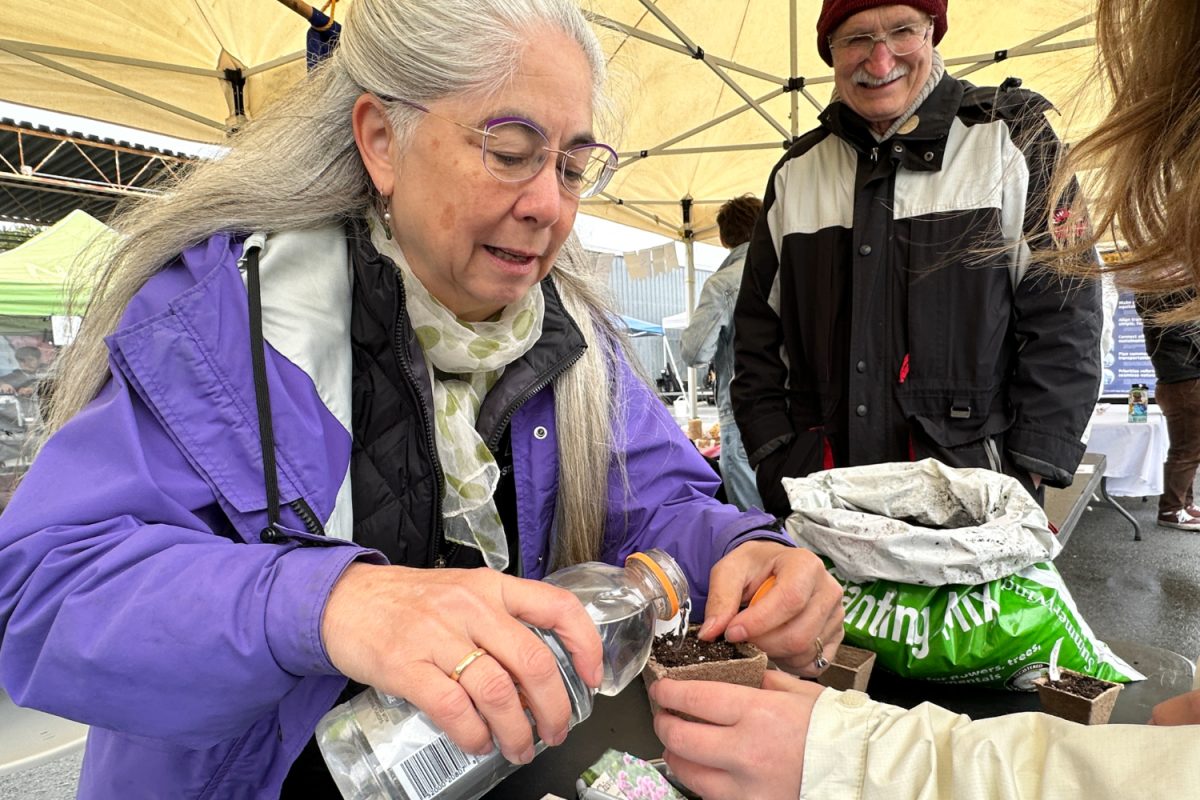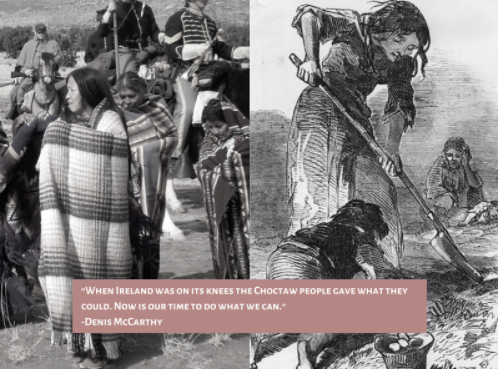
At the beginning of the 1830s, nearly 125,000 Native Americans lived on the thousands of miles of land in Georgia, Tennessee, Alabama, North Carolina, and Florida. Working on behalf of the white settlers who wanted to grow cotton on the Native American land, the federal government forced them to leave their homelands and walk thousands of miles to live on a designated reservation, west of the Mississippi River. Today, this deadly and treacherous journey is known as the Trail of Tears.
Over a quarter of the Choctaw population was lost to murder, disease, hypothermia, and starvation, but these people looked across the ocean and saw another group that was facing the effects of European colonization: the Irish, who were getting wiped out and displaced by famine exacerbated by years of British colonization.
The Choctaw Nation decided to raise money in order to donate to the devastated Irish. The Native American donors are said to have been inspired to help others suffering after experiencing extreme loss during the Trail of Tears, a series of forced relocations of approximately 60,000 Native Americans in the United States.
They raised $170 of relief aid, which would equal to $5,350 in today’s money. The favor has been returned through generous donations to this day, 173 years later.
While the Irish economy has slowly grown to a stable point, various Choctaw reservations are still economically devastated. Over the years, the United States government broke their treaties with these sovereign nations and took more land, causing an overcrowding problem. To this day, the government allocates a minuscule amount of money for all sovereign American Indian Nations, causing most people to live in serious poverty, even with a tourist-based economy.
Today, most tribes have the same lifestyle as they did before the events of the Trail of Tears.
When traveling through the Navajo country, it is not uncommon to see traditional hogans, which are the primary dwelling of the Navajo people. They share their food, practice ceremonies together, and care for each other’s families like their own.
But factors like overcrowded housing and inadequate health care have made the Native American communities some of the most at-risk during the novel coronavirus pandemic.
The coronavirus death rate in the Navajo Nation is currently the fifth-highest in the country, despite having a fraction of the population and density of people in other states.
Since Sunday, the Navajos have suffered 73 deaths from the virus, and a total of 2,737 cases have been confirmed.
The Hopi Nation in Arizona and the Choctaw nation in Mississipi have been desperate for help. Not only has the government provided inadequate funding, they even rescinded funding and services by ceasing to recognize certain nations.
While the U.S. government has refused to even hear these cries for help, a group of organizers across the ocean decided to do something about it.
Many Irish people are now thanking the Native Americans for helping them during the “Great Hunger” famine.
A GoFundMe campaign, created to raise money for the Navajo and Hopi families, has been flooded with donations, raising more than $1.8 million toward its $2 million goal.
“One hundred seventy-three years later to today, the favor is returned through generous donations from the Irish people to the Navajo Nation during our time of crisis,” the organizers of the GoFundMe wrote. “A message from Irish donor, Pat Hayes, sent from Ireland across the ocean: ‘From Ireland, 170 years later, the favor is returned! To our Native American brothers and sisters in your moment of hardship.’”
“We have lost so many of our sacred Navajo elders and youth to COVID-19. It is truly devastating. And a dark time in history for our Nation,” the organizers wrote. “In moments like these, we are so grateful for the love and support we have received from all around the world. Acts of kindness from indigenous ancestors passed being reciprocated nearly 200 years later through blood memory and interconnectedness. Thank you, IRELAND, for showing solidarity and being here for us.”
In less than 48 hours, more than 46,000 people donated to the page. This massive effort got the attention of celebrities like Polynesian actor, Jason Momoa. Momoa sent a truck with 1,540 cases of water to Tó Naneesdizí, an unincorporated town in Arizona.
Although this doesn’t solve all the shortages Indian-Americans face on reservations, it provides immediate relief. Organizations in Utah, Arizona, and New Mexico have already used the funding to buy and distribute food to elders and the most vulnerable members of their communities.
This powerful show of solidarity can teach the world many lessons during this time. While corporations from Apple to Burger King have preached about coming together, survivors of colonization have formed real alliances by showing the power of community. Most of all, this fundraiser is a reminder that no one is alone in this world, and that even the smallest acts of kindness will never be forgotten.

